How should Christians view traditional Chinese literary and philosophical texts?
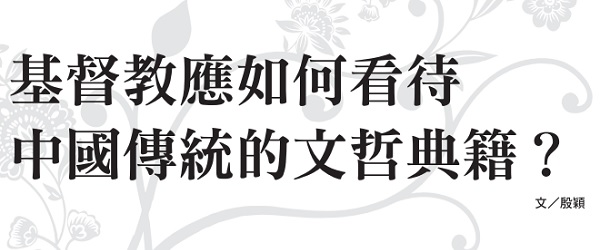
It has been more than 200 years since Restoration Christianity was officially introduced to China, but Chinese Christian literature has not yet been born. On the other hand, Japan, which has far fewer believers than China, has produced excellent Christian literature; whether it is the preparatory work of spreading the gospel Miura Ayako's novel "Freezing Point" or Endo Shusaku's novel "Silence" which discusses Christian theological thoughts, are both representative Christian literature.
Too much is not enough, there are two extremes of opinion
There seems to be no conclusion yet on how Chinese Christianity should view its own traditional classics. According to my understanding, there are two completely different views: one is to completely reject it and regard it as heresy; the other is to fully accept it and regard it as the Bible.
The former can be exemplified by "The Bible and the Book of Changes" written by Zhong Junfu; Zhong picked out some passages from the "Book of Changes" and criticized them from the standpoint of the Bible to demonstrate the truth of the Bible; but it made people read I am confused because Zhong Zhuo did not introduce the connotation of the "Book of Changes" as a whole. The whole book is written in chapters and I don't understand what it means.
The latter can be represented by the modern Christian scholar Xie Fuya, who advocated that Christianity should fully accept Confucian thought, and advocated that the Chinese Five Classics should be juxtaposed with the Old Testament's Five Books of Moses, and that the Confucian Four Books should be printed in the New Testament. After the Four Gospels. It is surprising to think that Confucian classics are the same as the Bible.
The paranoid views of these two Christian celebrities are open to question; many ideas in ancient Chinese books are not poisonous snakes and beasts, so there is no need to rush to reject them entirely; many of the ethical philosophies advertised by Confucianism are consistent with biblical principles, but they are all natural general revelation; it can never be compared with the truth of the Bible, let alone be equated with the Bible. Otherwise, it will lose the position of biblical faith and become an absurd extreme.
"Pin Qishu, Find Your True Self" has a unique perspective
As for Christianity's views on traditional Chinese literary masterpieces, the church mostly holds a skeptical attitude; they do not pay attention at all, or they range from passively discouraging reading to actively prohibiting reading, in order to prevent the church from being "contaminated." Pastor Su Wen'an, the author of "Pinqi Shu, Searching for the True Me", confessed that when he was a child, he read "Journey to the West" hiding in the closet with a flashlight. Therefore, the book was classified as a banned book in conservative Christian families. Fortunately, Pastor Su had a correct understanding of biblical truths and traditional Chinese literary classics, spent a lot of time studying the Four Great Books, and expressed his views from a Christian standpoint, which was indeed a major breakthrough for Christianity; according toThere are many works that comment on the Four Great Books, but Su's comments on these four books are based on the standpoint of Christian faith, so they deserve special attention.
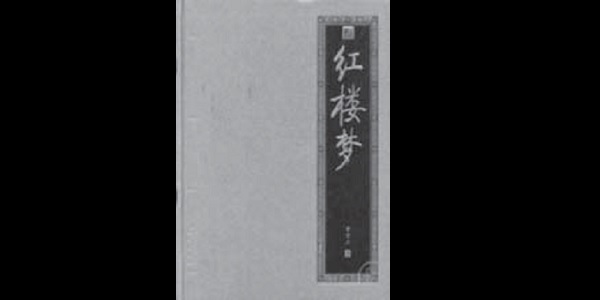
"A Dream of Red Mansions" was the one Su Zhu wrote the most about, and he put the most effort into. When I was a child, I read "The Story of Embroidered Statues and Stones" printed on pink paper in my family collection, and later collected many more. Several editions; including Hu Shi's limited edition of Qianlong Jiazhu Zhiyanzhai's Commentary on Stones. Later, I met Mr. Zhang Zhi, a contemporary Henan red scholar, and read "A New Supplement to A Dream of Red Mansions" which he spent ten years writing (Zhang believed that Cheng Gao's 40-chapter continuation went against Cao Xueqin's original intention, so he made the supplement), and had the honor to interact with the famous mainland scholar Mr. Zhou Ruchang, a red scholar, wrote a preface to Zhang's book and recommended the book to be published in Taiwan. Back then, I made an appointment with Duke Zhou to visit Cao Xueqin's former residence, but unfortunately I haven't had time to keep the appointment so far.
This "Dream of Red Mansions", which is "full of nonsense and a handful of bitter tears", is not only a Chinese treasure book, but also a shining world masterpiece. Su Wen'an not only read "Dream of Red Mansions" intensively, but also read many comments by red scholars, and made a conclusion based on various views on the Red Book. He believed that "Dream of Red Mansions" is a "confession" written by Cao Xueqin with blood and tears. Su even quoted It understands the correct meaning of repentance in the Bible and makes important comments on "Dream of Red Mansions".
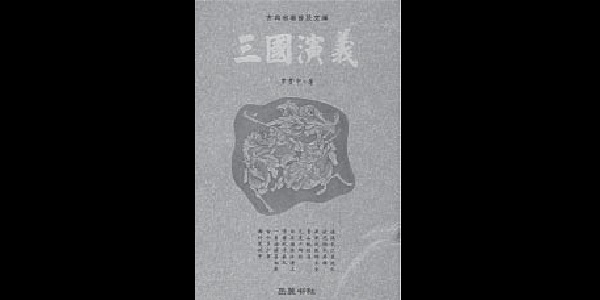
"The Romance of the Three Kingdoms" was the first classical Chinese novel I read when I was a child. Because it was a "leisure book", it was forbidden to read at home. I could only read it secretly in the corner of the courtyard in the cold winter, and my insteps became frostbitten. But when I read this book, I felt hot in my heart and was moved by the characters created by Luo Guanzhong; Luo Guanzhong successfully created two positive characters, Zhuge Liang and Guan Yu, and a negative character, Cao Cao. "The Romance of the Three Kingdoms" is a historical novel with added materials. Su Wen'an believes: "God writes big history, heroes write medium history, and ordinary people write small history." Through this historical novel, we are warned that we must also write our own lives. History.

In "Water Margin", "To overthrow the world and raise it up again? - The hard-to-reward ambition of the heroes of Liangshan" is the theme of Su's review of this book; this book describes the people's dissatisfaction with the political society and the behavior of seeking self-relief ; The so-called "officials force the people to rebel" is also a touching story of grudges and grudges. There are one hundred and eight generals in Liangshanbo. When I was a child, I could even recite their nicknames. The language used in this book is vivid and the writing style is clever. Jin Shengtan spoke highly of this book and ranked it as one of the "Six Great Scholars' Books" along with classics such as "Zhuangzi" and "Li Sao". Su Wen'an believes that part of the book's content, "feudalism is self-contained and murderous," should be a negative teaching material, which is the same view as mine. The comments are appropriate and precise, and you can hit the mark after reading them.
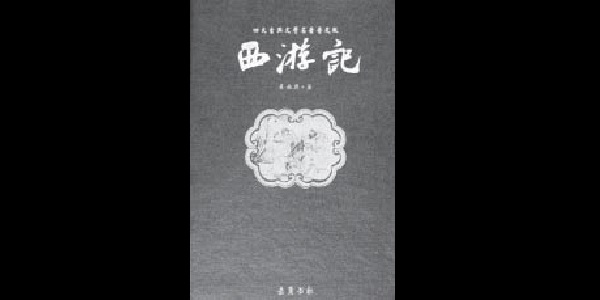
In the "balanced view of ancient and modern times" proposed by Su Zhu when commenting on "Journey to the West", he believed that the book contains profound philosophy, and the appreciation of this book should pay equal attention to entertainment, literature, criticism, and philosophy. Because the four characters in the book are each representative, they can profoundly express various aspects of human nature. I remember that Professor Zhao Zifan had an article in his "Literature and Aesthetics" titled "Joking about Zhu Bajie", in which he believed that Zhu Bajie is the general representative of rural Chinese rural characters, revealing various complexes of human "flesh" everywhere. Finally, Pastor Su said: "The Chinese Christian writers have a long way to go with "Journey to the West"", which is worth pondering. According to Wu Chengen's "Journey to the West" is not a "literary propaganda" of Buddhism, but it can be concluded that this book promotes Buddhism Extremely profound. Chinese Christian writers may use this book as a reference, but it will take some time for the Chinese church to produce such a far-reaching work. "Journey to the West" is the only religious novel among the four strange books. Although the plot is absurd, it has profound meaning and is worth reading.
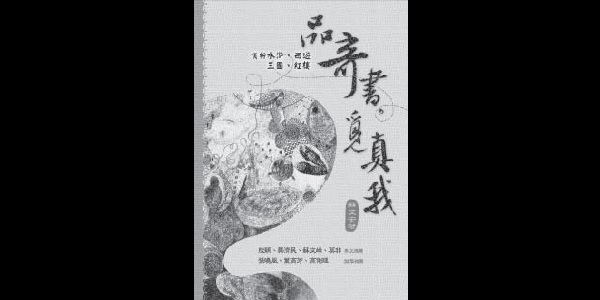
Su Wen'an's writing style is both solemn and humorous; simple and smooth. His "Looking for the True Self" is a great article and a good article. It can be used as an introduction to Chinese classical literature for Christians.Every believer's home and even the church library should display this book on the bookshelf together with these masterpieces, and let Pastor Su Wen'an accompany you on a tour of the beautiful garden of traditional Chinese literary masterpieces.(The pictures in this article are taken from the Internet)
 Author profile
Author profile
Pastor Yin Ying is a literary worker who loves literature, nature and praising the Creator. He is also an editor, publisher and communication worker. He once served as the corporate editor and president of a church news weekly, a producer and administrative director of radio and television programs, and pastored the church for more than 20 years. He is the author of many works such as "Return to the Pastoral", "The Bitter Cup and Feast of the Soul", "The Temptation of Stones", "The Footprints of Jesus", "Meditations under the Cross", etc.
